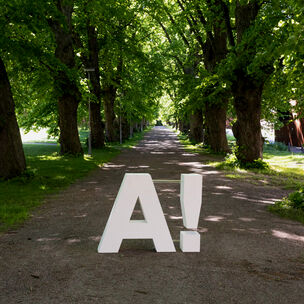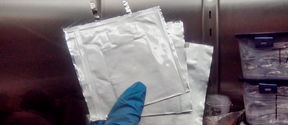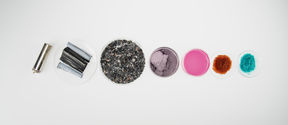Battery parts can be recycled without crushing or melting
New recycling method replenishes lithium in electrodes while keeping existing structure intact – and performance is nearly as good as new ones

Did you know that the EU has set the goal of having 30 million electric cars on the road by 2030? At the same time, consumption of raw materials is increasing: it is estimated that, by 2040, the demand for the lithium used in batteries will increase 42-fold, while demand for cobalt and nickel will increase 21-fold and 19-fold respectively. This increased demand is being fuelled by both the rise of the electric car and the ever-wider use of smartphones and portable devices – total demand for batteries is increasing by around 25 % every year.
Used batteries are both environmentally harmful waste but also valuable raw material for the next round of the product cycle. Indeed, battery technology has an important role in various solutions for mitigating climate change. The sector also features large and growing markets: the global market for lithium battery recycling, for example, is estimated to grow to around € 19 billion by 2030.
We all need to face our consumption habits and preferences but, beyond personal choices, the global challenges are complex.
– Mari Lundström, Aalto University, ProfessorTo be beneficial, recycling must be proven to be more ecological than producing raw materials.
Mining of cobalt is concentrated in the Democratic Republic of Congo, while most lithium comes from Chile and most rare earth metals from China. At the moment, battery manufacturing is concentrated in Asia. Work is being done, however, to create a competitive and sustainable battery industry in Europe, and Finland is well placed to lead the way in these efforts.
Finland has its own national battery strategy, the objectives of which include promoting competitiveness and sustainability. Finland’s strengths in this area include rich ore reserves, technological and recycling expertise and infrastructure as well as internationally top-level research, some of which is being carried out at Aalto.

The eco-credentials of electric cars are not as simple matter as one might think. A lot depends on factors such as where you live and how the electricity for charging your car has been produced – does it come from coal or nuclear power? Or is possible to use renewable energy?
Another significant factor that increases the environmental impact of electric cars is the battery technology used. This is precisely the focus of Aalto University’s Professor of Hydrometallurgy Mari Lundström and her research group.
The origin, composition and recyclability of materials – without forgetting the emissions and energy used in the processes at different stages – are key factors for assessing the environmental impact of electric car batteries. Recycling is only one part of the whole, and it cannot on its own meet the growing demand. What is also needed is new mines and metallurgical processing plants as well as more efficient use of raw materials.
Every owner of an electric car can also contribute to more efficient battery use. An electric car is a consumer product just like anything else. We can choose to only buy new when this is needed, optimize battery size, favour green energy when charging, and consider car sharing. As consumers, we can also take care of our electric car’s battery and thus extend its life by making sure, for example, not to overcharge it or run it completely flat.
In any case, and no matter how many of us drive an electric car, more and more metals will be needed globally for energy production and storage in the future. For this reason, science’s contribution is vital in the development of metal recycling.
The world needs new innovations to solve the great sustainability challenges of our time. Aalto carries out multidisciplinary research and development to respond for example to the challenges of the energy industry. By bringing together research and business in the battery metals sector, we can shape the cleaner driving of the future.
Did you know that only about 60 % of Aalto University's expenses are covered by the Ministry of Education's annual budget? The remaining funds are collected from other sources. Donations are used to support the education of the young future experts and to fund experimental innovation and long-term research work. Research and education need your support more than ever.

At Aalto, we see opportunities of tomorrow in today's problems. Would you like to get the latest news on science and art breakthroughs directly to your email?


New recycling method replenishes lithium in electrodes while keeping existing structure intact – and performance is nearly as good as new ones

The two-year BATCircle consortium led by Aalto University has produced a lot of new research on battery recycling and raw materials and strengthened the cooperation within the sector

Researchers conduct life-cycle assessment to determine the actual carbon footprint of battery recycling

Researchers map out how biomass from plants could replace unrenewable resources in optical applications